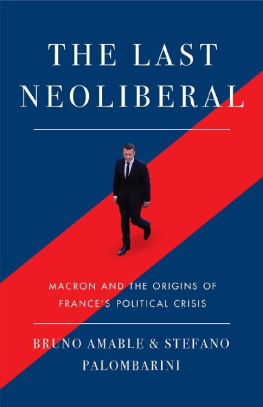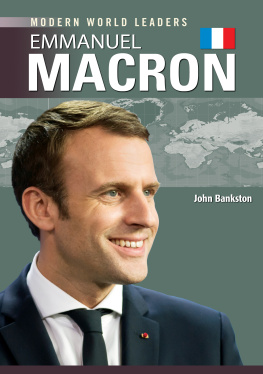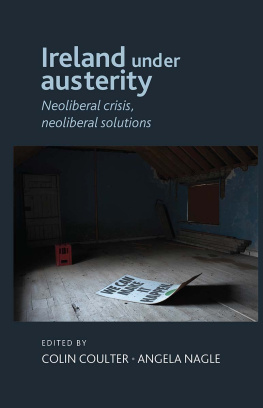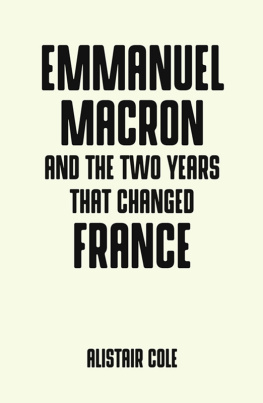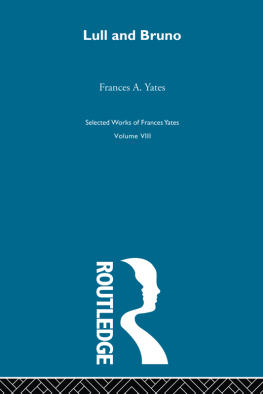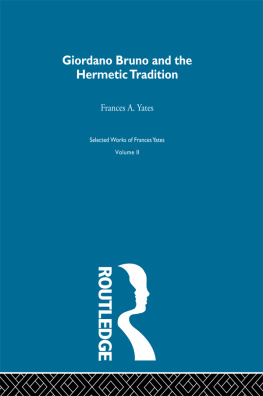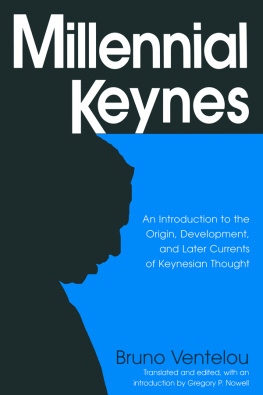Bruno Amable - The Last Neoliberal: Macron and the Origins of Frances Political Crisis
Here you can read online Bruno Amable - The Last Neoliberal: Macron and the Origins of Frances Political Crisis full text of the book (entire story) in english for free. Download pdf and epub, get meaning, cover and reviews about this ebook. year: 2021, publisher: Verso, genre: Politics. Description of the work, (preface) as well as reviews are available. Best literature library LitArk.com created for fans of good reading and offers a wide selection of genres:
Romance novel
Science fiction
Adventure
Detective
Science
History
Home and family
Prose
Art
Politics
Computer
Non-fiction
Religion
Business
Children
Humor
Choose a favorite category and find really read worthwhile books. Enjoy immersion in the world of imagination, feel the emotions of the characters or learn something new for yourself, make an fascinating discovery.
- Book:The Last Neoliberal: Macron and the Origins of Frances Political Crisis
- Author:
- Publisher:Verso
- Genre:
- Year:2021
- Rating:5 / 5
- Favourites:Add to favourites
- Your mark:
- 100
- 1
- 2
- 3
- 4
- 5
The Last Neoliberal: Macron and the Origins of Frances Political Crisis: summary, description and annotation
We offer to read an annotation, description, summary or preface (depends on what the author of the book "The Last Neoliberal: Macron and the Origins of Frances Political Crisis" wrote himself). If you haven't found the necessary information about the book — write in the comments, we will try to find it.
Bruno Amable: author's other books
Who wrote The Last Neoliberal: Macron and the Origins of Frances Political Crisis? Find out the surname, the name of the author of the book and a list of all author's works by series.
The Last Neoliberal: Macron and the Origins of Frances Political Crisis — read online for free the complete book (whole text) full work
Below is the text of the book, divided by pages. System saving the place of the last page read, allows you to conveniently read the book "The Last Neoliberal: Macron and the Origins of Frances Political Crisis" online for free, without having to search again every time where you left off. Put a bookmark, and you can go to the page where you finished reading at any time.
Font size:
Interval:
Bookmark:

The Last Neoliberal
The Last Neoliberal
Macron and the Origins of
Frances Political Crisis
Bruno Amable and Stefano Palombarini
Translated by David Broder

English-language edition first published by Verso 2021
Originally published in French as Lillusion du bloc bourgeois: Alliances
sociales et avenir du modle franais
Raisons dagir ditions 2018
Translation David Broder 2021
Translation of the Preface and Afterword David Fernbach 2021
All rights reserved
The moral rights of the authors and translator have been asserted
1 3 5 7 9 10 8 6 4 2
Verso
UK: 6 Meard Street, London W1F 0EG
US: 20 Jay Street, Suite 1010, Brooklyn, NY 11201
versobooks.com
Verso is the imprint of New Left Books
ISBN-13: 978-1-78873-357-1
ISBN-13: 978-1-78873-358-8 (US EBK)
ISBN-13: 978-1-78873-359-5 (UK EBK)
British Library Cataloguing in Publication Data
A catalogue record for this book is available from the British Library
Library of Congress Cataloging-in-Publication Data
A catalog record for this book is available from the Library of Congress
Library of Congress Control Number: 2020948696
Typeset in Minion by MJ & N Gavan, Truro, Cornwall
Printed and bound by CPI Group (UK) Ltd, Croydon CR0 4YY
Contents
Figures
Tables
This book analyses political development in France over several decades, in connection with the projects of economic and social transformation that have characterized this period. The reader will thus find in it the crisis of the old governing parties, the victory of Emmanuel Macron in the 2017 presidential election and the wide programme of neoliberal institutional reforms that the new president has been quick to implement, as well as the political reshaping and modification of social alliances.
The French case certainly has marked characteristics of its own, but it also presents features common to a large part of the European continent. It is therefore possible to draw on the analysis offered in these pages to shed light on the economic and political dynamic of other countries, and to diagnose the future prospects of the European project.
First of all, the collapse of the Parti Socialiste (PS) can be interpreted as a symptom of a more general crisis in the governmental experiences of what is called ever more misleadingly the European reformist left. Analysis of the rout of the PS shows that, rather than simply a stalemate of the so-called social-democratic project, we are witnessing the final phase of a movement that has seen parties, in principle of the left, implementing neoliberal reforms not only in France, but also in Spain, Italy, Germany, Greece and the Netherlands. All the parties that have made such attempts (respectively the PSOE, the Partito Democratico, the SPD, PASOK, and the PvdA) subsequently suffered defeats of varying magnitude, but identical in substance, to that of the Parti Socialiste.
On the other hand, the emergence of a nationalist or identitarian right wing which, for reasons that vary from country to country, criticizes the present state of European integration or its pursuit as such, characterizes a large part of the continent, represented by the Front National in France. The most striking political phenomenon in Germany in recent years has been the rise of the AfD, a party initially based on opposition to the euro, but which has gradually evolved to a fairly classical position of the xenophobic far right. In the United Kingdom, the challenge to the European Union, a deeply rooted sentiment here, was fronted by UKIP. In Italy, a similar role was played by the Northern League, whose transformation from a regionalist and federalist movement into a nationalist party was modelled on that of the Front National.
The weakening of the pro-EU right and the decline of the so-called reformist left parties opened the way for new kinds of governmental coalitions aimed at ensuring the viability of the European construction, strongly analogous to the bourgeois bloc united by Emmanuel Macron in France. This is the case with the German grand coalition, as well as the de facto alliance between the Partito Democratico and Forza Italia (Silvio Berlusconis party) that supported Italian governments from 2013 to 2018.
At the origin of these political reshuffles lies the fracture of the social alliances that formed the basis of alternation between the so-called governmental parties of right and left. This fracture, which has destabilized political systems in a large number of European countries, is most often ascribed to a divergence of interests between social groups that see themselves respectively as winners and losers in the process of economic globalization. We find at least in France winners and losers both in groups traditionally linked to the right and in those tending to the left, which partly validates the hypothesis that sees internationalization of the economy as the origin of the political changes under way.
Analysis of the French case, however, makes it possible to identify other causal factors, which suggest additional hypotheses for interpreting the dynamic at work on the European continent. Firstly, there are the long-standing tensions between a left that seeks profound changes in economic and social structures as a route out of capitalism, and a left that is seduced by market mechanisms and adheres, at least partly, to neoliberalism. These precede by several decades the relatively weak influence that the Blairite experience of the Third Way had on the Parti Socialiste. The current period marks a further stage in the conflictual relations between tendencies that had hitherto cohabited for better or worse within the same social-democratic political project. The fracture of the left bloc in France was deliberately produced by the action of the Second Left, which saw the working-class component of the alliance as an obstacle to the modernizing action that it sought to promote. Similarly, the neoliberal temptation on the right goes back to the origins of this ideological current, whose influence has steadily grown within conservative parties since the crisis of the 1970s. The experiments of radical neoliberal rupture in the 1980s led by Reagan in the United States and Thatcher in the UK subsequently functioned as ideological attractors for a section of the political class, as well as for a fraction of the traditional right-wing electorate, thus contributing to its crisis, whereas another fraction of this right-wing electorate still expects the state to play a protective role, and is opposed to at least some aspects of the neoliberal turn.
The progressive crisis of the traditional political blocs has led several analysts in France as elsewhere to view the rightleft divide, which for so long structured the political landscape, as gradually weakening, if not disappearing altogether. In their view, it is being replaced by a new cleavage between Europeanists and nationalists or, in a different but complementary version, between managers concerned with budgetary balances and factors that facilitate long-term economic development, and populists whose sole objective is directly connected with immediate electoral expectations. Some people have even sought to tackle this divide with the fetish opposition dear to some political scientists between cultural authoritarianism and liberalism. It is at least the merit of the Macron experience to have dispelled these illusions of libertarian neoliberalism by showing to what extent a radical neoliberal transformation of society can or even must be based on brutal police repression and significant infringement of civil liberties.
Next pageFont size:
Interval:
Bookmark:
Similar books «The Last Neoliberal: Macron and the Origins of Frances Political Crisis»
Look at similar books to The Last Neoliberal: Macron and the Origins of Frances Political Crisis. We have selected literature similar in name and meaning in the hope of providing readers with more options to find new, interesting, not yet read works.
Discussion, reviews of the book The Last Neoliberal: Macron and the Origins of Frances Political Crisis and just readers' own opinions. Leave your comments, write what you think about the work, its meaning or the main characters. Specify what exactly you liked and what you didn't like, and why you think so.

